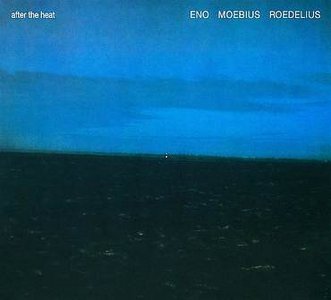

Eno Moebius Roedelius - After The Heat (1978/2009) [Remastered]
EAC | FLAC (Tracks) + LOG + CUE | 222 MB | MP3 320 CBR | 103 MB | No Artwork
Krautrock, Prog Rock, Ambient | Label: Bureau B | Catalog Number: BB 030
Brian Eno's second album collaboration with Dieter Moebius and Hans-Joachim Roedelius of Cluster consists of slow-moving instrumentals full of repeated synthesizer sound patterns and sustained guitar notes in the ambient style familiar from Eno's collaborations with Robert Fripp and albums of his own, such as Discreet Music. (One song, "Broken Head," features recited vocals by Eno, and on another, "The Belldog," he sings. On "Tzima N'Arki," he sings backwards.)
The second album by Cluster & Eno, which this time around was credited to each member separately and Eno first. As such, one might make the speculation that it reflects an increase of Eno's influence relative to the trio's 1977 debut. In addition to three tracks with vocals, the best songs here have the strong sense of layering, development, and structuring that Eno brought to his 70s solo albums. With its mood of dark unease, "The Belldog" is an extraordinary track, and the album's highlight. The song hovers back and forth between two chords with a pulsating generator-like bass synth pattern and also a continually descending piano pattern ending in a clunk of notes. On top of these are large swirls of airy synth and breezy textures, while a fifths drone moves in and out, creating and releasing tension. Lyrically, one can sense themes of isolation and metamorphosis that add to the piece's haunted quality. Put on those headphones at full volume and listen to the UFO-like swoop after Eno sings: "as the world, makes its circle through the sky," then see if you can find your breath. With its sense of repetitive, circular motion and elasticity, "Base & Apex" sounds like the musical equivalent of a rubber band factory. "T'Zima Narki," featuring Can's Holger Czukay returning on bass, features a number of clashing musical parts adding up to a surprisingly catchy sum. Among these are backwards, multi-tracked vocals culled from "King's Lead Hat" from Before and After Science; echoing, nautical blips; gleefully jangling, high register piano chords contrasting with quick stings on the lower registers; and Czukay's chromatic upper-inflections contrasting with the dull monotone of the piece's foundation. Half a world away from these tracks are the innocent "Luftschloß" and the mysterious, graceful beauty of "The Shade," which would have fit in perfectly on Eno's Another Green World. The bass synths in "Foreign Affairs" and "Oil," and the menacing moan of "Broken Head" that oozes out of the speakers like mud, recall the textures that Larry Fast and Tony Levin would soon lend to the early albums of Peter Gabriel. After the Heat represents peak work for both parties involved. My very first exposure to Cluster and still my favorite, I knew soon upon hearing it that I had found a very special album. Going on many years now, that opinion has not diminished. Though recorded decades ago, it is astounding how modern and anticipatory After the Heat still sounds. Definitely to be heard by all progressive fans, and almost certainly to be enjoyed.